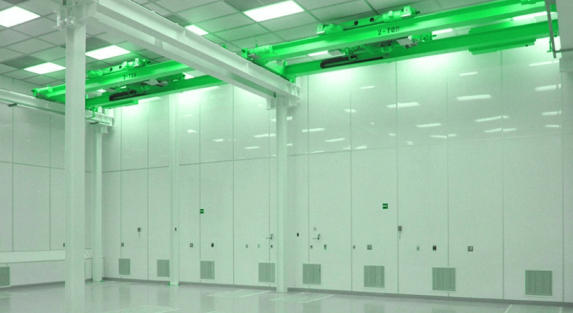Introduction
Cleanrooms are critical environments designed to maintain strict cleanliness levels to ensure the integrity of processes, products, and research. These spaces are widely used in industries like pharmaceuticals, semiconductors, biotechnology, and healthcare, where even microscopic contaminants can compromise outcomes. Central to their functionality is the Cleanroom Particle Filtration System, a sophisticated technology that removes airborne particles to achieve desired cleanliness standards.
In this article, we will explore the importance of cleanroom particle filtration systems, their components, operational mechanisms, benefits, and role in various industries, emphasizing why they are indispensable in modern controlled environments.
What Are Cleanroom Particle Filtration Systems?
A cleanroom particle filtration system is a specialized air filtration technology designed to maintain air purity in cleanrooms. It works by capturing and eliminating particles such as dust, bacteria, and other contaminants from the air.
Key Components:
- High-Efficiency Particulate Air (HEPA) Filters: Capture particles as small as 0.3 microns with 99.97% efficiency.
- Ultra-Low Penetration Air (ULPA) Filters: Remove even smaller particles for ultra-clean environments.
- Air Handling Units (AHUs): Control airflow and maintain consistent temperature and humidity levels.
- Pre-Filters: Capture larger particles to prolong the lifespan of HEPA and ULPA filters.
How It Works:
- Air Intake: Contaminated air enters the filtration system.
- Pre-Filtration: Large particles are removed.
- HEPA/ULPA Filtration: Smaller contaminants are captured.
- Clean Air Circulation: Filtered air is recirculated within the cleanroom.
Why Are Cleanroom Particle Filtration Systems Important?
1. Ensuring Product Quality
In industries like pharmaceuticals and microelectronics, even a tiny contaminant can ruin an entire batch of products. Cleanroom filtration systems ensure that airborne particles do not compromise product quality.
2. Protecting Human Health
Certain cleanrooms, especially in healthcare and biotechnology, require strict particle control to protect personnel from hazardous materials or ensure patient safety during medical procedures.
3. Regulatory Compliance
Many industries must adhere to strict regulatory standards, such as ISO 14644, which specify acceptable particle counts for cleanrooms. Filtration systems are essential for meeting these requirements.
4. Preventing Cross-Contamination
In environments like food production or pharmaceutical manufacturing, cross-contamination can lead to significant health risks. Filtration systems help maintain sterility by preventing the spread of contaminants.
Applications of Cleanroom Particle Filtration Systems
1. Pharmaceutical Industry
- Ensures sterile environments for drug production.
- Prevents microbial contamination in injectable medicines.
2. Semiconductor Manufacturing
- Protects delicate circuits from microscopic particles.
- Maintains high yields and prevents defects in electronic components.
3. Biotechnology
- Creates a controlled atmosphere for DNA and protein research.
- Supports tissue culture and genetic engineering experiments.
4. Healthcare
- Used in operating rooms to maintain sterility.
- Vital in manufacturing medical devices and implants.
5. Food and Beverage Industry
- Maintains cleanliness in packaging and processing areas.
- Prevents contamination of sensitive food products.
Key Features of Effective Cleanroom Particle Filtration Systems
High Filtration Efficiency
- Filters capable of trapping even the smallest particles.
Customizable Design
- Tailored solutions for specific cleanroom requirements.
Energy Efficiency
- Systems optimized to minimize energy consumption.
Durability and Reliability
- Long-lasting filters and robust construction.
Real-Time Monitoring
- Advanced systems equipped with sensors to track air quality continuously.
Challenges in Maintaining Cleanroom Filtration Systems
1. Filter Maintenance
Regular replacement of HEPA and ULPA filters is crucial but can be costly.
2. Energy Costs
Continuous operation of filtration systems consumes significant energy, especially in large facilities.
3. Operational Downtime
System malfunctions or maintenance can disrupt cleanroom operations, leading to productivity losses.
4. Contamination Risk During Servicing
Improper handling during filter changes or maintenance can introduce contaminants.
Advancements in Cleanroom Filtration Technology
1. Nanotechnology in Filters
Nanofiber coatings enhance the efficiency and lifespan of filters.
2. Smart Filtration Systems
IoT-enabled systems allow real-time monitoring and predictive maintenance.
3. Energy-Efficient Designs
Innovative designs reduce energy usage without compromising filtration quality.
4. Modular Systems
Easier to install and upgrade, modular systems offer flexibility for growing facilities.
Benefits of Cleanroom Particle Filtration Systems
Enhanced Productivity
- Reduced defects and higher yields in manufacturing processes.
Improved Safety
- Safer working environments for personnel.
Cost Savings
- Prevention of product loss due to contamination offsets system costs.
Eco-Friendly Options
- Advanced systems minimize energy consumption and environmental impact.
Selecting the Right Cleanroom Filtration System
When choosing a cleanroom particle filtration system, consider:
- Industry Standards: Ensure compliance with relevant regulations (e.g., ISO, FDA).
- Airflow Requirements: Match the system to your cleanroom’s airflow specifications.
- Type of Contaminants: Identify the specific particles or microorganisms to be filtered.
- System Scalability: Opt for a system that can adapt to future needs.
Conclusion
The importance of a Cleanroom Particle Filtration System cannot be overstated in environments where cleanliness is paramount. These systems are the backbone of controlled environments, ensuring the safety of products, personnel, and end-users. From enhancing product quality to ensuring compliance with stringent regulations, filtration systems play a vital role in modern industries.
As technology continues to evolve, cleanroom particle filtration systems are becoming smarter, more efficient, and environmentally friendly. Investing in these systems is not just a necessity but a strategic move for industries aiming to excel in their respective fields.







 (2).png)
.png)


 (1).png)
.png)